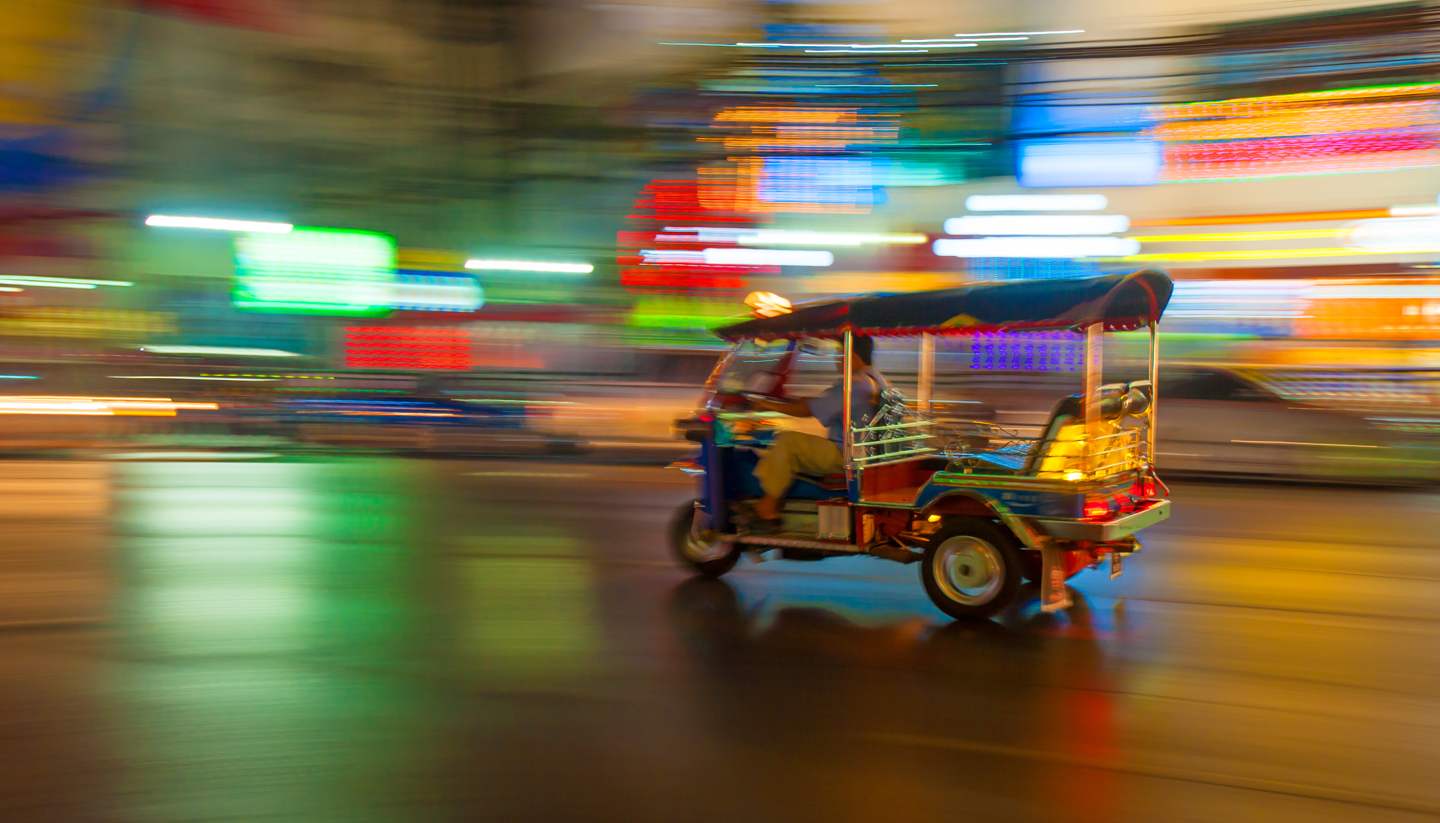Thailand: Doing business and staying in touch
Doing Business in Thailand
Business culture in Thailand emphasises courtesy, calm communication and a strong sense of respect. First meetings tend to be polite and measured, with relationships taking time to develop. It is common for people to avoid open confrontation, and maintaining a pleasant atmosphere is often considered just as important as the details of a negotiation.
Greetings usually involve a handshake, though some Thais may offer the traditional wai, a slight bow with hands pressed together. Visitors are not expected to initiate the wai, but returning it when offered is appreciated. Using titles and surnames is the norm in professional settings, and addressing senior figures first shows appropriate respect.
Hierarchy plays a noticeable role in business interactions. Decisions may not be made immediately, as proposals are often discussed internally before a final agreement is reached. Patience is therefore valuable, and pressuring counterparts for quick answers can be counterproductive. Meetings may begin with light conversation to establish rapport, and it is courteous to wait to be shown where to sit.
Business attire is generally smart, particularly in Bangkok and other major cities. Men typically wear long-sleeved shirts and trousers, while women opt for conservative office wear. In more relaxed or creative sectors, dress codes may be less strict, but neat presentation is still expected.
Exchanging business cards is a common part of introductions. Cards should be offered and received with both hands, and it is polite to take a moment to read the card before putting it away. Writing on someone's business card in front of them is better avoided.
When hosting or being hosted, meals often play a part in business relationships. It is courteous to wait for the senior person's cue before beginning to eat or drink. Small gifts may be offered on formal occasions, such as company-branded items or simple souvenirs from one's home country. Gifts should be presented with both hands.
Overall, doing business in Thailand involves a blend of professionalism, patience and cultural sensitivity. Showing respect, remaining calm in discussions and taking time to build trust will help meetings and negotiations proceed smoothly.
Office Hours
Mon-Fri 08:30 to 17:30.
Economy
Thailand has one of Southeast Asia's most diverse and well-developed economies, combining modern industry with long-established agricultural traditions. Manufacturing is a major driver of growth, with the country serving as a regional hub for car production, electronics and processed food. Tourism is another key pillar, supporting millions of jobs and contributing significantly to national income, especially in coastal and cultural destinations.
Agriculture remains important, particularly rice, rubber, fruit and seafood, much of which is exported. At the same time, Bangkok has grown into a financial and commercial centre, home to a large services sector that includes retail, logistics, technology and creative industries. Economic conditions vary by region, with the central and eastern provinces more heavily industrialised, while the north and northeast retain stronger agricultural ties.
Visitors generally find prices reasonable compared with many Western countries. Transport, food and accommodation offer good value, though costs can rise in major tourist areas or during peak seasons. Thailand's mixture of traditional markets, modern infrastructure and dynamic urban centres reflects the country's position as a regional economic crossroads.
GDP
US$526 billion (2024).
Main exports
Electronics, vehicles, and agricultural products.
Main imports
Machinery, equipment, chemicals, petroleum, and metals.
Main trading partners
China, Japan, United States, Malaysia.
Keeping in Touch in Thailand
Mobile Phone
Mobile phone coverage in Thailand is generally reliable, with strong signals in cities, towns and most tourist areas. Coverage is good along major roads and coastal destinations, though it may be weaker in some remote, mountainous or forested regions. Thailand uses GSM networks, so most international phones will work as long as they are unlocked.
Prepaid SIM cards are easy to purchase on arrival, with major providers including AIS, TrueMove H and DTAC. SIM cards are sold at airports, convenience stores such as 7-Eleven, shopping malls and mobile phone shops. Registration is required, and travellers will need to show their passport when buying a SIM.
Internet
Internet access in Thailand is widely available and generally reliable, especially in cities and major tourist destinations. Most hotels, cafés, restaurants and shopping centres offer free Wi-Fi, though speeds and stability can vary. Airports and long-distance bus terminals also provide public Wi-Fi hotspots, often requiring simple registration.
Coworking spaces and modern cafés in Bangkok, Chiang Mai and Phuket typically offer fast connections suitable for remote work. In smaller towns and rural areas, Wi-Fi may be slower or less consistent, but it is still commonly available in guesthouses and tourist-oriented businesses. Travellers who need constant connectivity may prefer to use a local SIM card with a data package as a backup.
Media
Thailand has a lively media landscape, with television, radio, newspapers and online platforms all widely used. For visitors, English-language media is easy to access. National newspapers such as the Bangkok Post and The Nation provide local news, travel updates and cultural coverage. Many hotels supply these papers, and they are also available online.
Thai television offers a mix of news, dramas and entertainment, though broadcasts are mostly in Thai. International news channels can usually be found in hotels and serviced apartments. Streaming services, including Netflix and YouTube, are widely used and accessible with a good internet connection.
Digital media is particularly popular. Travel information, restaurant recommendations and local event listings are often found through apps and social platforms. Google Maps, Grab and food-delivery apps are commonly used by locals and tourists alike, making it easy to navigate and discover places of interest.

